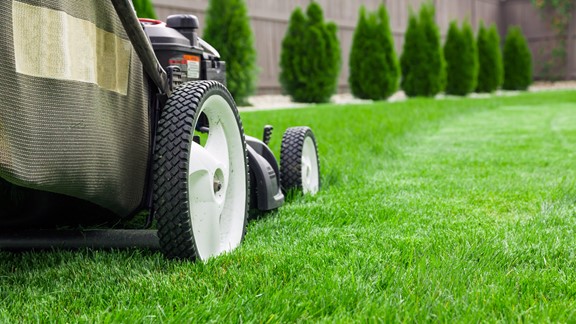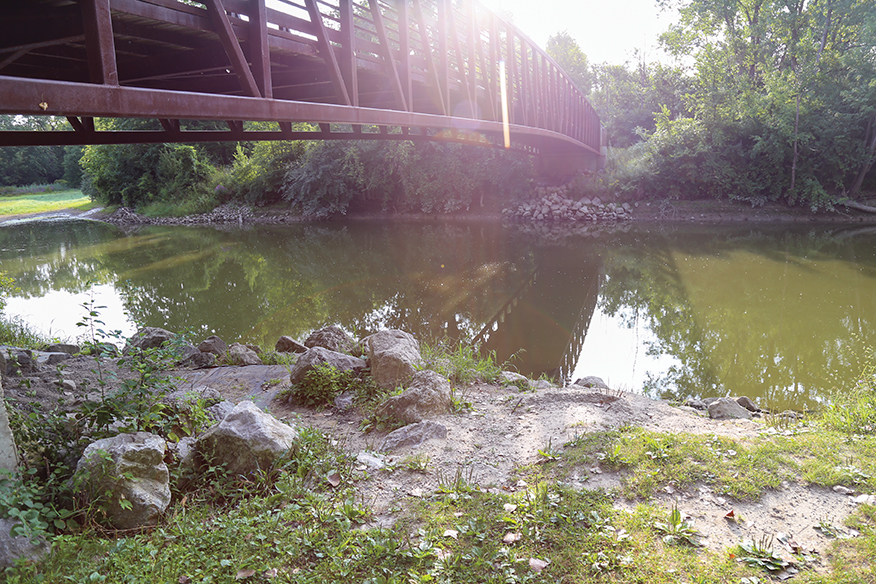When we think of water pollution, we often think of the pollution caused by business and industry, but that is not the whole story. Runoff from residential neighborhoods, cities, and farms contributes to water pollution as well. Storm drains and roadside ditches lead to our lakes and streams, so we must be mindful proper disposal of substances like oil, pet waste, leaves, fertilizers, or contaminated water (car washing) and more. As a resident of Genesee County, you have a big impact on stream and river quality within our watersheds.
Remember- you’re not just fertilizing your lawn, you’re fertilizing our local water bodies!
What's the Issue?
Storm drains found in our streets and yards empty into our lakes and streams without being treated. Therefore, when we fertilize our lawn, we contaminate our freshwater with nutrients that promotes algae growth. Large algae blooms excessively consume oxygen that supports a healthy ecosystem that fish and humans need to survive. Considering most of the 1.5 million homes in Southeast Michigan fertilize their lawn, we are all responsible for practicing sustainable lawn care for the safety and quality of our water.
A few simple changes can make a big impact and also save you time!
Go Slow. Select an organic or slow-release fertilizer by checking the label. A slow-release fertilizer has at least half of the nitrogen in a water-insoluble form. These fertilizers gradually release nitrogen to plant roots instead of releasing all the nitrogen at once, providing a steady supply of nutrients over an extended period. You will save time and money buy utilizing less fertilizer.
Buy Low. Select a fertilizer with little to no phosphorus. Most lawns already contain enough phosphorus. Excess phosphorus is the primary culprit of algae blooms in our lakes!

Mow High. Maintain your lawn cheaper and easier by mowing high - three inches is the rule! Tall grass promotes root growth and shades out weeds. Let short clips fall back on the lawn. Clippings recycle nitrogen back into the soil so fertilizer can be reduced by 25 percent or more!
Sweep It. Fertilizers left on sidewalks and driveways will easily wash into storm drains. So, save money and our lakes and streams by sweeping fertilizer back onto the lawn.
Don’t Guess…Soil Test. A soil test will tell you what, if any, fertilizer is needed in your yard. Contact your County Michigan State University Extension office for more information.
Make Fertilizer-free Zones. Keep fertilizer applications at least 20 feet away from the edge of lakes, streams, or storm drains.
Hire Smart. Select a lawn service that uses organic fertilizers or offers slow-release nitrogen, low phosphorus option.
